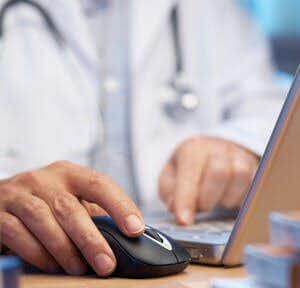
Patients own their medical records. They may find it difficult or expensive to access that information, however.
In past decades, doctors and hospitals stored patient information on paper forms. If a person wanted access to her data, she had to get a nurse or clerical person to find the files and copy them, page by page. That was expensive, time-consuming and often frustrating for everyone involved.
Electronic Medical Records:
This situation was supposed to change in the era of electronic medical records. Now 97 percent of hospitals and 83 percent of physicians rely on electronic records for their patients. That means that your medical records are readily accessible to your health professionals. In theory, you should be able to access all the key information in your records. In reality, that is rare. There are only a few hospitals or clinics that provide patients “OpeNotes.”
Places like Stanford Health Care, Beth Israel Deaconess Medical Center and Geisinger Health System have expanded OpenNotes. This encourages physicians to share detailed health information directly with patients in their medical records.
Why OpenNotes Are Important!
Many people can now see a limited amount of information through what are called patient portals. For example, “MyChart,” a system found on many electronic health records, allows patients to see messages from health care providers, lab results, appointment schedules on a calendar, a brief review by the provider, a list of medications and billing information.
What is not included is a detailed provider assessment and analysis of the visit. These are often referred to as “clinic notes.” They are the nuts and bolts of any medical record. These are the notes a physician, nurse practitioner or PA puts in the medical chart during and/or after your visit.
They allow for a far more thorough understanding of what is going on with your case. You will see what the diagnosis is, what the treatment recommendations are and much more. They give patients greater understanding and control of their care. They also help reduce the likelihood of medical errors because a patient has a vested interest in making sure everything is accurate. If a mistake is made in the medical record the OpenNotes system should allow the patient to communicate corrections.
A systematic review of patient access to medical records (Acta Clinica Belgica, Jan. 6, 2017) noted:
“Only a minority of patients spontaneously request access to their medical file, in contrast to frequent awareness of this patient right and the fact that patients in general have a positive view on open visit notes. The majority of those who have actually consulted their file are positive about this experience. Access to personal files improves adequacy and efficiency of communication between physician and patient, in turn facilitating decision-making and self-management. Increased documentation through patient involvement and feedback on the medical file reduces medical errors, in turn increasing satisfaction and quality of care. Information improvement through personal medical file accessibility increased reassurance and a sense of involvement and responsibility.
CONCLUSION:
From the patient perspective medical record accessibility contributes to co-management of personal health care.”
How Much Will You Have to Pay to Get Your Medical Records?
A federal guidance last year limited copying fees. It suggested a flat fee of no more than $6.50 for digital health records. But patients may still have trouble getting copies of their records.
Sadly, health professionals often charge per-page copying fees allowed by state law. These were designed for paper records and can be as much as 10 cents a page; more for scanned images. Health systems may also charge additional search and retrieval fees. Kentucky is the only state in the country that requires the initial copy of a patient’s records be provided for free.
Such state charges could add up to hundreds of dollars for a medium-sized medical record. Texas and Minnesota have the highest maximum allowable fees in the country: $53.60 for a 15-page record in Texas and $218.70 for 150 pages in Minnesota. A few keystrokes could print out an entire medical record or transfer it to a thumb drive in minutes.
How Much Should a Copy Cost?
The authors point out that electronic medical records should allow for easy, inexpensive reproduction of patients’ data. Now all that is needed is the institutional will to do so.
JAMA Internal Medicine, online Jan. 30, 2017
We firmly believe that everyone should have access to their medical records. You might enjoy this story, with a music video on “Gimme My DAM Data,” from e-Patient Dave about his experience. (DAM means Data About Me: my medical records.) The Society for Participatory Medicine has been working on the problem of helping patients get access to their own medical records. Let us know how you have gotten a copy of your own record. Was it worthwhile? Please share your experience below.
You may also find our book, Top Screwups Doctors Make and How to Avoid Them of interest. It reveals why medical errors are a leading cause of death in the United States and why getting access to your medical records could be so important in preventing health care harm.

